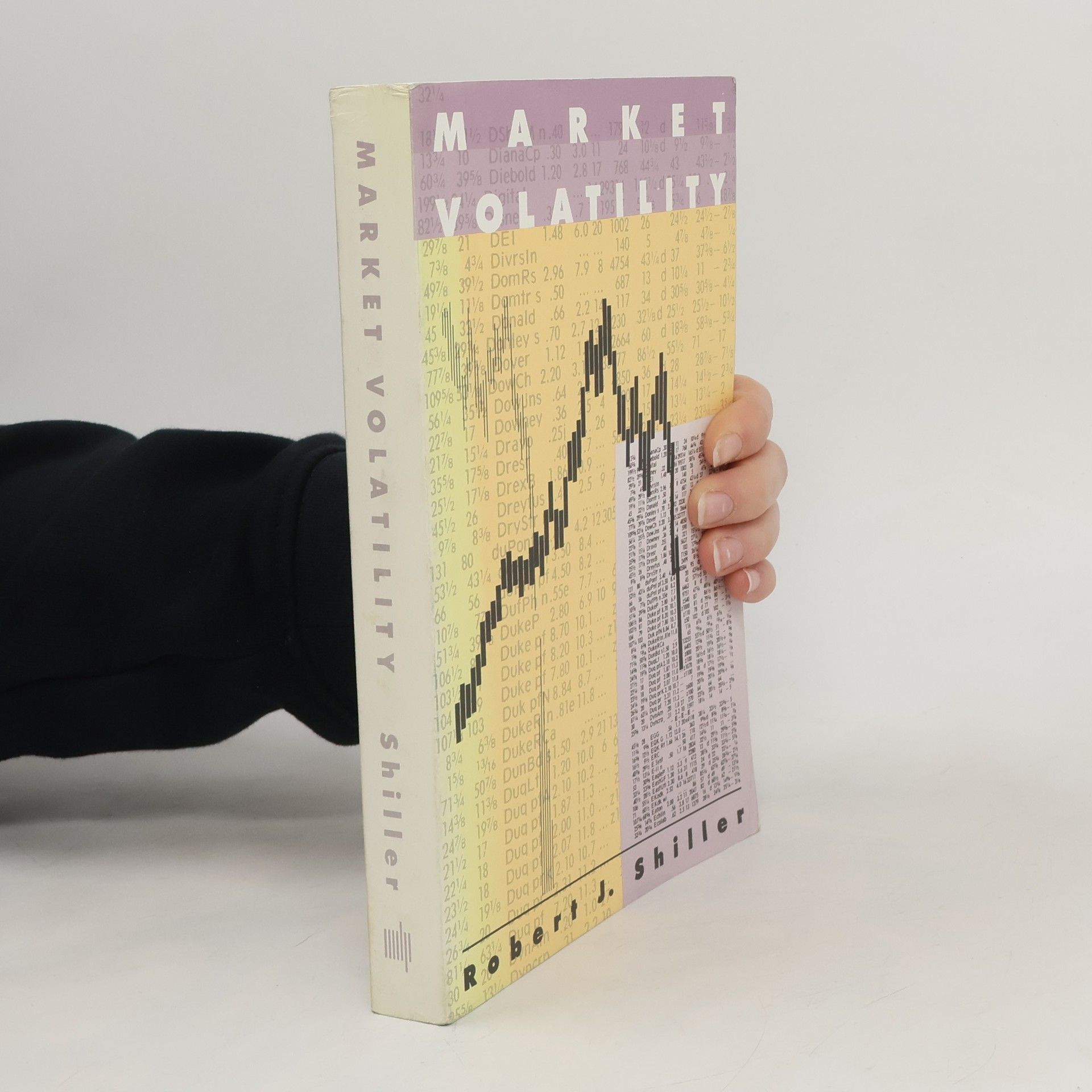叙事经济学
- 355 Seiten
- 13 Lesestunden
諾貝爾經濟學獎得主羅伯特·希勒借鑒了流行病學模型,為讀者提供了思考流行敘事影響經濟和社會生活的全新視角.通過諸多重大事件的回顧,輔以資料分析,希勒展示了流行敘事對歷史進程及其中的個體人生的深刻影響,表明對這些流行敘事的經濟學思考,可以提高對金融危機,衰退,蕭條和其他經濟事件的預測能力,幫助我們未雨綢繆,將各種負面衝擊的危害降到更低.
Robert Shiller ist ein amerikanischer Ökonom und Autor, dessen Werk sich mit Verhaltensökonomie und deren Auswirkungen auf die Finanzmärkte befasst. Seine Schriften untersuchen die psychologischen Faktoren, die wirtschaftliche Entscheidungen beeinflussen, und wie diese Elemente zu Marktblasen und Krisen beitragen. Shillers Analysen heben die Rolle von sozialen Erzählungen und irrationalem Verhalten bei der Gestaltung wirtschaftlicher Realitäten hervor. Er zielt darauf ab, die inhärente Instabilität von Finanzsystemen aufzuzeigen und Wege zu größerer Stabilität vorzuschlagen.






諾貝爾經濟學獎得主羅伯特·希勒借鑒了流行病學模型,為讀者提供了思考流行敘事影響經濟和社會生活的全新視角.通過諸多重大事件的回顧,輔以資料分析,希勒展示了流行敘事對歷史進程及其中的個體人生的深刻影響,表明對這些流行敘事的經濟學思考,可以提高對金融危機,衰退,蕭條和其他經濟事件的預測能力,幫助我們未雨綢繆,將各種負面衝擊的危害降到更低.
Wie Geschichten die Wirtschaft beeinflussen - ein revolutionärer Erklärungsansatz
„Tech-Aktien steigen immer!“ „Immobilienpreise fallen nie!“ Stimmt das wirklich? Ob wahr oder nicht, solche Narrative, oder einfacher gesagt Geschichten, beeinflussen das Verhalten von Menschen und somit auch die Wirtschaft massiv. Wie entstehen Narrative? Wie gehen sie viral, wie gewinnen sie an Einfluss, wann verlieren sie diesen wieder? Welche Auswirkungen haben sie? Und, last, but not least: Wie lassen sich mit ihnen ökonomische Zusammenhänge und Entwicklungen besser verstehen und vorhersagen? Diese Fragen untersucht Wirtschafts-Nobelpreisträger Robert J. Shiller in seinem vielleicht wichtigsten Buch.
Economists have traditionally relied on financial aggregates like price-earnings ratios and asset prices for forecasts, often with limited success. Robert Shiller enhances this approach by incorporating insights from mass psychology, leading to the development of behavioral economics. He explores how psychological factors shape economic events and narratives, explaining the emergence and viral spread of popular economic stories and their impact on economic developments. In the preface, Shiller introduces narrative economics, referencing the Great Depression and World War II, and illustrates a contemporary example with the viral rise of Bitcoin. He discusses how narrative economics intersects with other disciplines and draws parallels to epidemiology in understanding how ideas spread. Shiller also examines recurring economic narratives, such as the gold standard, real estate booms, and stock market fluctuations. He concludes with a vision for future research in narrative economics, emphasizing the importance of understanding these narratives in shaping economic realities.
Akerlof and Shiller argue that markets harm as well as help us. As long as there is profit to be made, sellers will systematically exploit our psychological weaknesses and our ignorance through manipulation and deception. Based on the intuitive idea that markets both give and take away, they show how phishing affects everyone, in almost every walk of life. We spend our money up to the limit, and then worry about how to pay the next month's bills. The financial system soars, then crashes. In doing so they explain a paradox: why, at a time when we are better off than ever before in history, all too many of us are leading lives of quiet desperation.
Argues that finance should be defined not merely as the manipulation of money or the management of risk but as the stewardship of society's assets, and that new ways to rechannel financial creativity to benefit society as a whole are needed.
Börsenspekulationen, Milliardenpoker, überzogene Boni: Was im Interesse der Finanzwirtschaft erstrebenswert ist, hat für den Rest der Gesellschaft oft katastrophale Folgen. Doch das muss - und darf - nicht sein. Topexperte Robert Shiller stellt seine Vision einer besseren Finanzordnung vor, in der die Märkte wieder ihre ursprüngliche Funktion erfüllen: das Kapital der Gesellschaft zu verwalten und zu mehren. „Robert Shillers kluge Botschaft muss dringend gehört werden!“ The Economist „Spannend und forsch formuliert. Eine intellektuelle Kampfansage an die schier allgegenwärtigen Kritiker des Finanzkapitalismus.“ Manager Magazin „Shillers große Leistung ist, dass er eindrucksvoll herausstellt, welche großen Verdienste die Finanzbranche am Wohlstand moderner Gesellschaften hat.“ Die Welt „Robert Shiller ruft uns die fundamentale Bedeutung des Finanzsystems für das Funktionieren unserer Gesellschaft in Erinnerung.“ Financial Times „Liefert überzeugende Argumente für einen neuen, unverstellten Blick auf die oft viel zu unbedacht geschmähte Finanzindustrie.“ New York Times
Viel zu lange hat die Ökonomie einen der wichtigsten Faktoren im wirtschaftlichen Agieren von Menschen vernachlässigt: die Animal Spirits, also die nicht-rationalen Aspekte unseres Handelns. Ein großer Fehler, sagen George A. Akerlof und Robert J. Shiller, dessen Folgen wir in der Wirtschaftskrise täglich neu zu spüren bekommen. Sie fordern, das Verhalten des Menschen in der Wirtschaft wieder stärker zu berücksichtigen, anstatt sich auf reinen Marktglauben zu konzentrieren. Dieses Buch ist das Ergebnis ihrer langjährigen Forschungsarbeit. Es zeigt uns, wie erfolgreiches ökonomisches Denken und Handeln in der Zukunft aussehen muss.
Robert Shiller ist wieder da. In seinem aktuellen Werk The Subprime Solution beschäftigt sich der Autor des Bestsellers Irrational Exuberance mit den Ursachen und Folgen der gegenwärtigen Immobilien- und Finanzkrise. Der Yale-Professor sieht die Ursache für die Krise in den letzten beiden großen Blasen, Aktien in den 1990ern und Immobilien von 2000 bis 2007. Er zeigt, wie diese Blasen dazu führten, dass das Kreditvolumen in den USA explodierte eine Entwicklung, die nun in Bankrott, Zwangsversteigerung und einer globalen Kreditkrise endet. Um das Vertrauen in die Märkte wiederherzustellen, sind konzertierte Rettungsaktionen dringend nötig. Sein Fokus liegt dabei allerdings auf den Opfern der Subprime-Deals, auf den tausenden US-Haushalten mit geringem Einkommen und gigantischen Schulden. Langfristig fordert Die Subprime-Lösung einen völlig neuen Umgang mit finanziellen Risiken. Eine neue Kultur verbesserter Information, einfacher Verträge und Regelungen sowie neuer Maßnahmen, die den Verbraucher besser schützen. Dieses aktuelle Buch sollte jeder gelesen haben, der verstehen möchte, wie wir in die Subprime-Krise hineingeraten sind und der wissen möchte, wie wir wieder herausfinden.
Examines the impact of a rapidly evolving global economy on the twenty-first century financial world and presents six fundamental principles for using information technology and advanced financial theory to hedge risk.
Er hat die Technologieblase vorhergesagt und vor der Immobilienblase warnte er ebenfalls frühzeitig. Nun analysiert Wirtschafts-Nobelpreisträger Robert Shiller die aktuelle Situation an den Finanzmärkten – und warnt erneut. Mit seiner Theorie des „Irrationalen Überschwangs“ zeigt Nobelpreisträger Robert Shiller, dass Euphorie seitens der Akteure die Märkte auf unhaltbare und gefährliche Niveaus treiben kann. So geschehen in den Jahren 2000 bei der Hightechblase und 2007/2008 bei der Subprimeblase, die Shiller präzise vorhergesagt hat. Dies ist die dritte, aktualisierte und erweiterte Auflage seines Klassikers. Shiller bezieht hier erstmals auch den Anleihenmarkt ein und gibt Empfehlungen, was die Individuen und die Politik im Lichte der aktuellen Situation an den Finanzmärkten tun sollten.